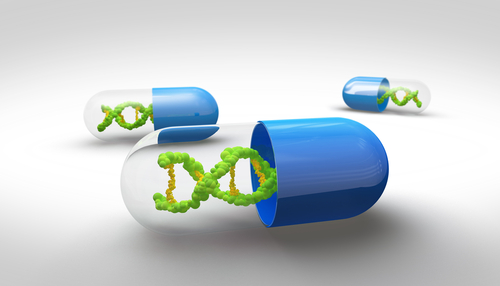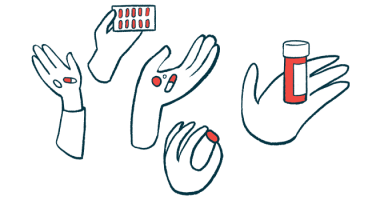SGT-001 Improves Muscle Function of Dogs with Duchenne Muscular Dystrophy, Studies Show
by |

Solid Biosciences’ SGT-001 improved muscle activity in dogs with Duchenne muscular dystrophy (DMD), according to research the company presented at a Washington conference.
Another finding of the two preclinical-trial studies was that SGT-001 increased the expression of microdystrophin, a form of the protein dystrophin found in muscle. Too little of the protein is a hallmark of muscular dystrophy.
SGT-001 combats muscular dystrophy without disturbing the immune system or causing safety concerns, the studies also indicated.
The company presented the findings at the annual meeting of the American Society of Gene and Cell Therapy, which started May 9 and wraps up May 13.
“These preclinical data show the potential efficacy, durability and tolerability of SGT-001, and give us further confidence in our plan to initiate our clinical program later this year,” Dr. Joel Schneider, a Solid Biosciences vice president, said in a news release. “I would like to thank our academic partners for their work to help us build one of the most robust gene therapy preclinical datasets in DMD and for sharing our mission to bring meaningful treatments to patients with this devastating disease.”
SGT-001 uses a virus to deliver a healthy microdystrophin gene to override a faulty gene’s inability to trigger enough dystrophin expression in muscles. The company hopes to prove in clinical trials that the therapy significantly slows or stops the progression of DMD.
One of the two studies the company presented showed that SGT-001 promoted microdystrophin expression in dogs. The experiment involved four doses of the therapy. The higher the dose, the higher the expression. The higher expression continued for up to two years after the treatment, the researchers found.
The higher expression was associated with improved muscle function, the team added.
The other study showed that three different doses of SGT-001 led to significant improvements in dogs’ muscle function, compared with untreated dogs. As in the first study, the improvements were associated with microdystrophin expression that the therapy was able to sustain over time, the researchers said.
In both studies, the treatment was well-tolerated and no safety concerns were reported, the team said.
The results support the start of a clinical trial to investigate the effectiveness and safety of using SGT-001 to treatment Duchenne MD patients, Solid said.
In October 2016, the U.S. Food and Drug Administration and the European Commission granted Orphan Drug designations to SGT-001 for the treatment of DMD.
DMD is a rare genetic disease. Those who have it are short of dystrophin, the protein that helps keep muscle cells functioning correctly. So a major symptom of the disease is muscle weakness.
This condition usually shows up between the ages of 3 and 5. Symptoms include difficulty standing, climbing and running. The disease affects about one in every 3,500 to 5,000 boys worldwide.







